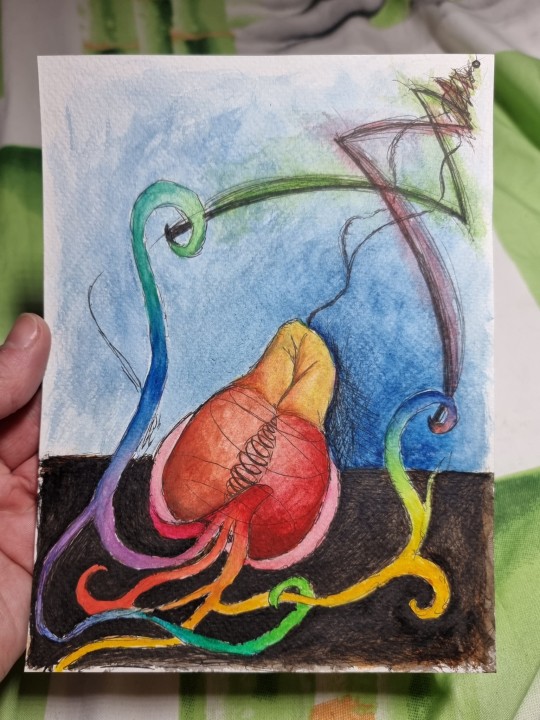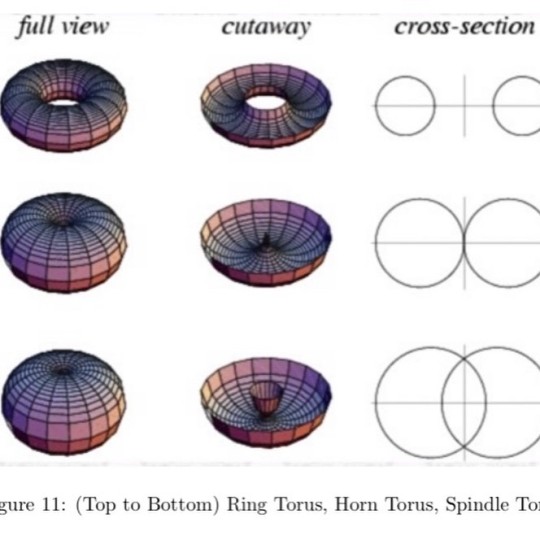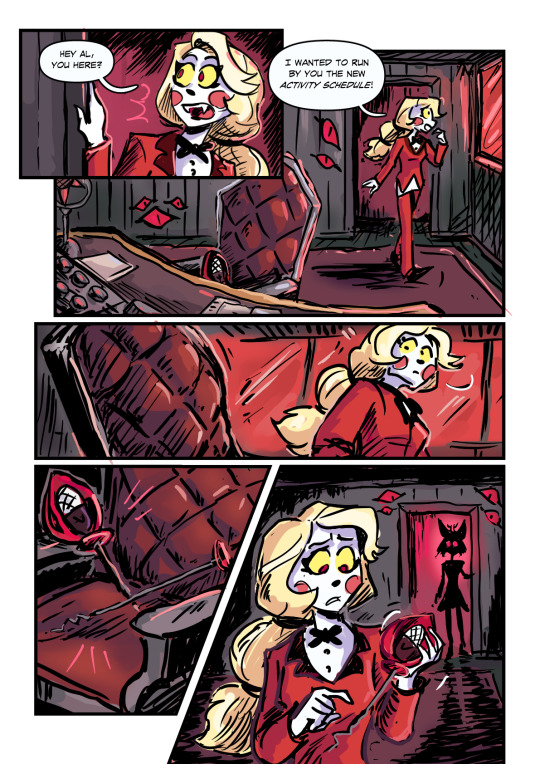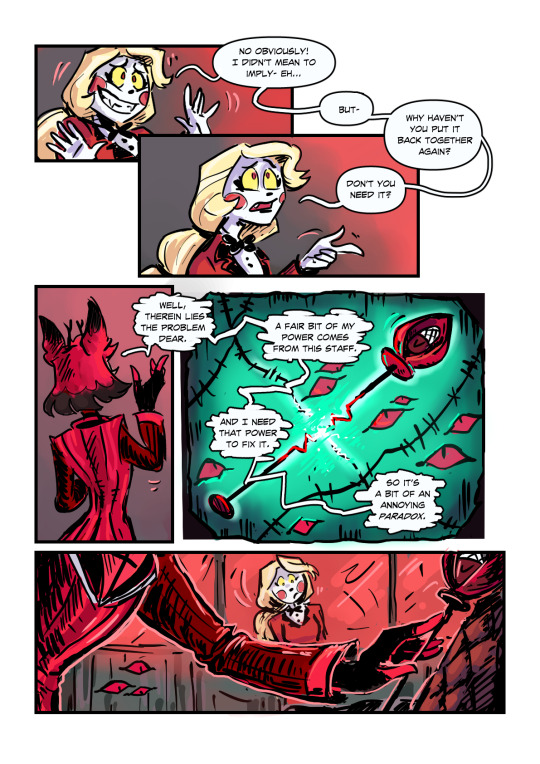#Probability theory
Explore tagged Tumblr posts
Text
The Philosophy of Statistics
The philosophy of statistics explores the foundational, conceptual, and epistemological questions surrounding the practice of statistical reasoning, inference, and data interpretation. It deals with how we gather, analyze, and draw conclusions from data, and it addresses the assumptions and methods that underlie statistical procedures. Philosophers of statistics examine issues related to probability, uncertainty, and how statistical findings relate to knowledge and reality.
Key Concepts:
Probability and Statistics:
Frequentist Approach: In frequentist statistics, probability is interpreted as the long-run frequency of events. It is concerned with making predictions based on repeated trials and often uses hypothesis testing (e.g., p-values) to make inferences about populations from samples.
Bayesian Approach: Bayesian statistics, on the other hand, interprets probability as a measure of belief or degree of certainty in an event, which can be updated as new evidence is obtained. Bayesian inference incorporates prior knowledge or assumptions into the analysis and updates it with data.
Objectivity vs. Subjectivity:
Objective Statistics: Objectivity in statistics is the idea that statistical methods should produce results that are independent of the individual researcher’s beliefs or biases. Frequentist methods are often considered more objective because they rely on observed data without incorporating subjective priors.
Subjective Probability: In contrast, Bayesian statistics incorporates subjective elements through prior probabilities, meaning that different researchers can arrive at different conclusions depending on their prior beliefs. This raises questions about the role of subjectivity in science and how it affects the interpretation of statistical results.
Inference and Induction:
Statistical Inference: Philosophers of statistics examine how statistical methods allow us to draw inferences from data about broader populations or phenomena. The problem of induction, famously posed by David Hume, applies here: How can we justify making generalizations about the future or the unknown based on limited observations?
Hypothesis Testing: Frequentist methods of hypothesis testing (e.g., null hypothesis significance testing) raise philosophical questions about what it means to "reject" or "fail to reject" a hypothesis. Critics argue that p-values are often misunderstood and can lead to flawed inferences about the truth of scientific claims.
Uncertainty and Risk:
Epistemic vs. Aleatory Uncertainty: Epistemic uncertainty refers to uncertainty due to lack of knowledge, while aleatory uncertainty refers to inherent randomness in the system. Philosophers of statistics explore how these different types of uncertainty influence decision-making and inference.
Risk and Decision Theory: Statistical analysis often informs decision-making under uncertainty, particularly in fields like economics, medicine, and public policy. Philosophical questions arise about how to weigh evidence, manage risk, and make decisions when outcomes are uncertain.
Causality vs. Correlation:
Causal Inference: One of the most important issues in the philosophy of statistics is the relationship between correlation and causality. While statistics can show correlations between variables, establishing a causal relationship often requires additional assumptions and methods, such as randomized controlled trials or causal models.
Causal Models and Counterfactuals: Philosophers like Judea Pearl have developed causal inference frameworks that use counterfactual reasoning to better understand causation in statistical data. These methods help to clarify when and how statistical models can imply causal relationships, moving beyond mere correlations.
The Role of Models:
Modeling Assumptions: Statistical models, such as regression models or probability distributions, are based on assumptions about the data-generating process. Philosophers of statistics question the validity and reliability of these assumptions, particularly when they are idealized or simplified versions of real-world processes.
Overfitting and Generalization: Statistical models can sometimes "overfit" data, meaning they capture noise or random fluctuations rather than the underlying trend. Philosophical discussions around overfitting examine the balance between model complexity and generalizability, as well as the limits of statistical models in capturing reality.
Data and Representation:
Data Interpretation: Data is often considered the cornerstone of statistical analysis, but philosophers of statistics explore the nature of data itself. How is data selected, processed, and represented? How do choices about measurement, sampling, and categorization affect the conclusions drawn from data?
Big Data and Ethics: The rise of big data has led to new ethical and philosophical challenges in statistics. Issues such as privacy, consent, bias in algorithms, and the use of data in decision-making are central to contemporary discussions about the limits and responsibilities of statistical analysis.
Statistical Significance:
p-Values and Significance: The interpretation of p-values and statistical significance has long been debated. Many argue that the overreliance on p-values can lead to misunderstandings about the strength of evidence, and the replication crisis in science has highlighted the limitations of using p-values as the sole measure of statistical validity.
Replication Crisis: The replication crisis in psychology and other sciences has raised concerns about the reliability of statistical methods. Philosophers of statistics are interested in how statistical significance and reproducibility relate to the notion of scientific truth and the accumulation of knowledge.
Philosophical Debates:
Frequentism vs. Bayesianism:
Frequentist and Bayesian approaches to statistics represent two fundamentally different views on the nature of probability. Philosophers debate which approach provides a better framework for understanding and interpreting statistical evidence. Frequentists argue for the objectivity of long-run frequencies, while Bayesians emphasize the flexibility and adaptability of probabilistic reasoning based on prior knowledge.
Realism and Anti-Realism in Statistics:
Is there a "true" probability or statistical model underlying real-world phenomena, or are statistical models simply useful tools for organizing our observations? Philosophers debate whether statistical models correspond to objective features of reality (realism) or are constructs that depend on human interpretation and conventions (anti-realism).
Probability and Rationality:
The relationship between probability and rational decision-making is a key issue in both statistics and philosophy. Bayesian decision theory, for instance, uses probabilities to model rational belief updating and decision-making under uncertainty. Philosophers explore how these formal models relate to human reasoning, especially when dealing with complex or ambiguous situations.
Philosophy of Machine Learning:
Machine learning and AI have introduced new statistical methods for pattern recognition and prediction. Philosophers of statistics are increasingly focused on the interpretability, reliability, and fairness of machine learning algorithms, as well as the role of statistical inference in automated decision-making systems.
The philosophy of statistics addresses fundamental questions about probability, uncertainty, inference, and the nature of data. It explores how statistical methods relate to broader epistemological issues, such as the nature of scientific knowledge, objectivity, and causality. Frequentist and Bayesian approaches offer contrasting perspectives on probability and inference, while debates about the role of models, data representation, and statistical significance continue to shape the field. The rise of big data and machine learning has introduced new challenges, prompting philosophical inquiry into the ethical and practical limits of statistical reasoning.
#philosophy#epistemology#knowledge#learning#education#chatgpt#ontology#metaphysics#Philosophy of Statistics#Bayesianism vs. Frequentism#Probability Theory#Statistical Inference#Causal Inference#Epistemology of Data#Hypothesis Testing#Risk and Decision Theory#Big Data Ethics#Replication Crisis
2 notes
·
View notes
Text

Will to live - Self-realization and the serendipity of chaos helping out in semi-unfortunate circumstances
[2023/10/25]
It is not finished, but I will most certainly never finish it, because... well, I better put it on that huge pile of projects not worth the effort to work on even further...
I like the concept and idea.
I drew that in art therapy when we had to describe how our life went during the last year - and we should use a fruit to depict that.
So I started with an apple that became also a pear.
I added the intersection circles of a spindle torus:
(It is depicted in that img:)

Then my surrealizing brain went even further with that thought soup, and created an abstract heart from that apple-pear-fruit.
I also added some colorful arteria that can also be imagined as roots and/or branches.
Finishing my thought soup on paper, I ended in the green-ish and red-ish trajectory lines - which are like bifurcations of trajectories of two bouncing bouncy balls... converging towards the upper right corner.
#surrealism#surreal#din a5#ink#watercolor#ink and watercolor#pear#apple#torus#spindle torus#surreal art#knottys art#knotty et al#chaos#chaos theory#game theory#probability theory#trajectories#serendipity of chaos#red thread of time#STEMmy art#bifurcations#dynamical systems#heart#colorful#rainbow#colors#symbolism
8 notes
·
View notes
Text
Game Theory and Probability Theory
In mathematics and economics, there is a fascinating crossroads where strategic decision-making meets uncertainty. This intersection is where Game Theory and Probability Theory converge, offering insights into the dynamics of human interaction, strategic behaviour, and the unpredictability of outcomes. Join me as we delve into this captivating domain, exploring how these two fields intertwine and shape our understanding of complex systems.
Understanding Game Theory
At its core, Game Theory is the study of strategic decision-making among multiple interacting agents, aptly referred to as "players." Think of it as the science of strategy, where individuals or entities make choices with the aim of maximizing their own gains while considering the actions of others. Whether it's in economics, political science, biology, or beyond, Game Theory provides a framework for analyzing various scenarios of conflict, cooperation, and competition.
The Elements of Games
To grasp the essence of Game Theory, we need to understand its building blocks. Games are characterized by players, strategies, payoffs, information, and rationality. Each player has a set of strategies to choose from, leading to different outcomes with associated payoffs. Information asymmetry and rational decision-making further complicate the dynamics, making Game Theory a rich field for exploration.
Probability Theory's Role
Enter Probability Theory, the study of random phenomena and uncertainty. In the context of Game Theory, probability comes into play when outcomes are uncertain or stochastic. Whether it's the roll of a dice in a board game or the unpredictability of market fluctuations in economics, probability theory provides the tools to quantify and analyze uncertainty.
Where They Meet
So, how do Game Theory and Probability Theory intertwine? Consider a game like poker, where players must make decisions based on incomplete information and uncertain outcomes. Probability theory allows us to calculate the likelihood of different hands and anticipate opponents' actions, thereby informing strategic choices. In more complex games involving multiple players and intricate strategies, probability theory helps us model the uncertainty inherent in the decision-making process.
Applications and Insights
The applications of this marriage between Game Theory and Probability Theory are vast. From designing optimal auction mechanisms to analyzing voting behavior in elections, the insights gained from this interdisciplinary approach are invaluable. Moreover, in the age of artificial intelligence and machine learning, understanding strategic interactions and uncertain environments is crucial for developing intelligent systems capable of making informed decisions.
Conclusion
In the landscape of mathematical sciences, the synergy between Game Theory and Probability Theory offers a lens through which we can understand and navigate the complexities of strategic decision-making and uncertainty. As we continue to explore this dynamic intersection, we unlock new perspectives and tools for addressing real-world challenges across various domains. So, the next time you find yourself pondering a strategic dilemma or contemplating uncertain outcomes, remember the profound insights that emerge when Game Theory meets Probability Theory.
#Game Theory#Probability Theory#Mathematics#Economics#Strategic Decision-making#Uncertainty#Interdisciplinary#Complexity#Artificial Intelligence#Machine Learning#Strategic Interactions#Decision Science#Behavioral Economics#Mathematical Modeling#Social Sciences#Strategic Behavior#Optimization#Cooperation#Conflict#Rationality#today on tumblr#new blog
2 notes
·
View notes
Text

The science diaries of S. Sunkavally. Page 114.
#seaweed#iodine#infra red#photosynthesis#chlorophyll#vibrational energy#DNA scission#circular DNA#chromosome threads#probability theory#cursive#theoretical biology#handwriting#manuscript
0 notes
Text


I don’t see anybody talking about this, but it hurt my heart
#I know there’s plausible theories that jinx is probably alive but still#arcane#vi arcane#arcane season 2#arcane jinx#arcane analysis#arcane parallels
12K notes
·
View notes
Text
That's not how probability theory works, those aren't elementary consequences!
They don't meet two of the three requirements:
They aren't exclusionary, both can happen at the same time
They aren't equally probable either!
(sorry if i used completely incomprehensible terms, i learnt this stuff in Ukrainian and am haphazardly translating as i go)

7K notes
·
View notes
Text
going back through mockingjay and what do you MEAN clerk carmine is most likely the fiddler at annie and finnick's wedding, what do you MEAN clerk who was the one to bring lucy gray the katniss just before things fell apart and the one to raise the girl who became haymitch's reason for living what do you MEAN clerk got to see his sister and his niece's dreams come true as the hunger games are destroyed by a girl with lucy gray's fire and lenore dove's heart what do you MEAN clerk saw the arrows his friend made be part of the downfall of the capital what do you MEAN clerk lost his family but saw them live on in haymitch and katniss and peeta
#the covey is family and therefore i fully think clerk viewed lucy as his sister#and therefore when he met katniss#since burdock and lenore are maternal cousins#and the whole theory that burdock's mom was barb azure#AND when he realizes katniss has the mockingjay pin#i think clerk would look at katniss as family from afar#but oh god thinking about that#AND with tam being the one to make the arrow tips for burdock#i think they probably lasted many years#and katniss ended up holding onto them#every time i think sotr is done making me feel emotions#it brings up new things AGAIN#the ballad of songbirds and snakes#sunrise on the reaping#the hunger games#clerk carmine#katniss everdeen#lucy gray baird#lenore dove#haymitch abernathy#sunrise on the reaping spoilers
4K notes
·
View notes
Text
"it's not that deep" not yet but I've got a shovel and fan theories and digging makes great exercise!
#sometimes in literary analysis things line up like an accidental pun#no it's *probably* not intentional but that doesn't make it less amusing#I'm building this theory like reverse jenga not bc it's structurally sound but because the block were lying around & im having a good time#anyway i think we should replace irl conspiracy theories (bigoted rightwing cult behavior)#with elaborate insane viral fan theories that everyone on the internet pretends to take seriously#everyone goading each other on digging up increasingly obscure 'evidence' treating it like it's already been made canon#basically red string and a cork board levels of crazy but make it a social media activity#but at the end of the day it's a joke everybody's in on. Yes And improv at its finest#call that Goncharov's Razor
3K notes
·
View notes
Text



what-if concept where kaufmo didn't got abstracted and he and pomni got to co-exist
#idk exactly how their interactions would go but i think they'd be friends#also they'd probably share theories about the exit#the amazing digital circus#tadc#tadc pomni#tadc kaufmo#kaufmo#pomni#tadc jax#tadc ragatha#my art#fanart
31K notes
·
View notes
Text









Charlie: “I’m so glad my most villain-coded friend is at full power again! 🥰💕”
*throws this to you angst goblins like raw steak* ❤️
(No I will not do a part 2!❤️)
#grey art#hazbin hotel comic#hazbin hotel#charlie morningstar#hazbin alastor#alastor#auntie grey needs to take a nap now Jesus Christ#I’m really happy this fixation is pushing me to do grand comic projects like this- but I’m TIRED.#😂😂😂#my theory is that alastor wants Charlie’s soul cause she’s insanely powerful or special#and she could probably take him out in one strike#but she would never do that cause she is so sweet and lovely#she’s like a gentle giant in terms of power#but she’s not stupid or childish or meek#she’s such a compassionate leader and good friend I love her so much#and then there’s alastor with his manipulative charismatic energy#I think he’ll underestimate her in the end#man i’m so tired#hazbin hotel fanart
16K notes
·
View notes
Text




still ruminating over Lost In the Book With Spooky Skeletons Part 1, so here's a selection of some of my favorite little bits! (...some more loosely paraphrased than others) (I just feel like Idia has no room to criticize in general, okay)
anyway, I'm sure we're just going to have a fun time celebrating Halloween and nothing bad is going to happen whatsoever! :)
#art#twisted wonderland#twisted wonderland spoilers#lost in the book with nightmare before christmas#hajimari no halloween#calling dibs on skeleton kisses as the name of my band#man scully is just a delightful little weirdo and i'm enjoying him immensely#(i'm going with scully until we get something official just because it makes me think of x-files)#(スカリー is also how the agent's name is transliterated and i don't know if it was intentional but i love it as a bonus reference)#(i want to believe™)#gosh though#'no one at school likes me because i won't shut up about halloween and jack skellington' i'm feeling VERY attacked right now twst#look scully your people are out there#just get on the forums and -- oh wait you're probably from like the 1800s or something#(my theory is that he's from the past and there's just some Book Magic going on to bring us together)#(LOOK they made a point of saying that the book fair has been held annually for a super long time)#a hot topic goth born before hot topic was invented...so sad 😔#i dunno i could be wrong but that feels like a good working theory for now#if it wasn't for mal sensing twsty ~magic~ on him i would think he's like. a christmas elf who's going to kidnap jack in a reverse-nmbc#(not ruling that out though because it would be amazing)#god all the sprites in this event look AMAZING. loving the desaturated colors and the extra drawn-on lines 😍#i'm genuinely kinda sad that we aren't gonna get to see every character like this#who knows...maybe halloweentown will be imperiled again next year...#come back and destroy my keys again please#(that said i'm doing weirdly well so far?)#(i promised i'd save for sebek and just do cursory pulls to get the SRs and not hope for the SSRs)#(...but then leona jumpscared me four coffins in anyway. halloween magic is REAL)
7K notes
·
View notes
Text
Free (mostly academic) aro theory resources
On Amatonormativity
Amatonormativity, Aromanticism, and What Defines a Relationship - Rilee Granger
Amatonormativity in the Law: An Introduction - Silver Flight
"Allonormativity and Compulsory Sexuality" (chapter 6 of Encyclopedia of Queer Studies in Education) - Stephanie Anne Shelton
'I Dont Want To be a Playa No More': An Exploration of the Denigrating effects of 'Player' as a Stereotype Against African American Polyamorous Men - Justin L. Clardy
On Relationship Anarchy
The short instructional manifesto for relationship anarchy - Andie Nordgren
The Relationship Anarchy website
Thinking Relationship Anarchy from a Queer Feminist Approach - Roma De las Heras Gómez
Beyond romantic love – an analysis of how the dilemma of closeness vs. autonomy is handled in relationship anarchy discourse - Ricardo Guillén
The Ethics of Relationship Anarchy - Ole Martin Moen
On community
Examining aromantic and asexual inclusion in queer-serving organizations - based on Lauren Lichty's work
Exploring Aromanticism Through an Online Qualitative Investigation With the Aromantic Community: “Freeing, Alienating, and Utterly Fantastic” - James Fowler et al.
Community Listening Sessions with Aromantic People: Summary and Recommendations Report
Aurea Aro Census
Sexuality, romantic orientation, and masculinity: Men as underrepresented in asexual and aromantic communities - Hannah Tessler
On QueerPlatonic Relationships
Queerplatonic Zucchinis: A Short Primer - Omnes and Nihil (unsure)
Queering the Nuclear Family - Katie Linder
Queer(ing) consensual nonmonogamies, queering therapy: queer intimacy, kinship, and experiences of CNM in LGBTQIA+ lives - Christian Klesse et al.
On intersectionality
Intimacy and Desire Through the Lens of an Aro-Ace Woman of Color
Being Aroflux & Black - Kimberley Butler
Transitioning into Aromanticism as a Trans Student - Amethyst
Existing and Defying Stereotypes as an A-spec Disabled Person - Sapphire Crimson Claw
A Reflection on the March Carnival of Aros (several testimonies by aros of color and non-cis/non-het aros are linked in this article)
Other aro-related interesting reads
New Dimensions, New Directions: Asexualities and Aromanticism in the 21st Century - Megan Carroll et al.
Enriching the Story: Asexuality and Aromanticism in Literature - Adrienne Whisman
The Importance of Representation for Lesser-Known Sexual Identities on the Example of Asexuality and Aromanticism - Jasmin Kiechle
Experiences of Italian Asexual and Aromantic Individuals in Healthcare Settings: from Explicitly Aggressive to Affirming Interactions
Other lists of aro-related ressources (not all sources listed in these are free though)
by Aurea
The Asexuality and Aromanticism Bibliography
If you know of any other free ressource about aromanticism please consider adding to this list
#all those links are legal open access but you can also probably find other ressources for free in pirating websites#i tried to center specifically aro sources and not aroace but there is a lot of overlap#also disclaimer: I’m white aroace and able-bodied#While I’ve tried to include diverse perspectives my own identity probably shaped how I’ve curated this list#aromantic spectrum#aromantism#arospec#actually aro#actually aromantic#aro#aro pride#aro spec#aromantic#aromantic pride#aromanticism#alloaro#aspec#aroace#aromantic voices#aromantic theory#aro theory#aspec community#aspec mafia#aspec pride#queerness#queer#queer community#we're here and we're queer#queer theory#queer resources
869 notes
·
View notes
Text
The Mrs flood reveal is either going to be absolutely incredible or an absolute and total disappointment with no in between
#doctor who#doctor who spoilers#i need to remind myself not to get too into it and not try tl find interesting theories#because it will probably be somet stupid like with ruby again#but id so happily be proved wrong
981 notes
·
View notes
Text











Jim Kirk + Loneliness in Star Trek: The Original Series
Dagger of the Mind, The Conscience of the King, This Side of Paradise, And The Children Shall Lead, Requiem for Methuselah, Mark of Gideon
#jim kirk#star trek tos#dagger of the mind#the conscience of the king#this side of paradise#and the children shall lead#mark of gideon#tos parallels#web weave#doesn't he say in one of the movies that he will die alone? (tvh is up next for my first watch)#anyways! my personal theory is tarsus iv + survivor's guilt informs this fear#on top of how kirk is about love in general. he wants it but he doesn't allow it for himself - not fully#but that's its own post subject and someone has probably already written it anyways
682 notes
·
View notes
Text
Danny: Hey, I need you to be my boyfriend for a week.
Jason: What.
Danny: My parents are coming over and I've apparently accidentally talked about a partner more than once and only realized when they said they wanted to meet them.
Jason, currently still solidifying his power as a Crime Lord: Excuse me?
Danny: Let me get this out of the way, I do not consider you at all a person of romantical interest and a friend. But I need you to act as my partner for only a week until my parents go on their merry way over to my sister, okay?
Jason: Is there, quite literally, no one else to ask this?
Danny: You're my only friend who lives in Gotham, plus we share the same apartment.
Jason: That's almost sad.
Danny: You in?
Jason: Sure, why not.
===
Maddie: Danny, honey.
Danny: Yes mom?
Maddie: I don't mean to.... question, who you choose as your parent but. Well, me and your father was just wandering if he was a... [Maddie gestures with her hand] you know, one of those.
Danny, uncomprehendingly staring at his mother's hand: What.
Maddie: Oh dear, how do I bring this up. You know, one of those.
Danny: Mother I need more context.
Jack: If your boyfriend a crime lord!?
Maddie: Jack!
Jack: What? Beating around the bush wasn't helping!
Danny: Say WHAT?
===
Danny: Hey dude, thanks for helping with this even though you didn't need to!
Jason: No problem, I wasn't doing anything too [Crime Lord activities flash through his mind] important.
Danny: Can you believe my parents thought you were a crime lord though? Weird am I right?
Jason:
Danny: Jason. You are scaring me.
Jason: Haha, yea that's weird isn't it?
Danny: Jason.
Jason: Well, I have to leave now to attend to my totally real and totally not crime related job at the ice cream shop.
Danny: [Squints eyes]
Jason: [Internally sweating bullets]
Danny: Suuuuure, bring me back some ice cream though.
Jason: [Thumbs up and leaves]
#dc x dp#dp x dc#dpxdc#dp x dc crossover#dcxdp#dc x dp crossover#Danny isn't romantically interested in Jason in the least#Neither is Jason romantically interested in Danny#But he needed a partner and Jason was the only one available#Jason somehow managed to balance that and being a crime lord#Jack and Maddie instantly had the suspicion of him being Red Hood aka a crime lord aka a criminal aka a danger to their boy#Danny doesn't know at ALL though and so they hang that theory up because if Danny didn't know then he probably wasn't a crime lord#Jason's identity was almost blown because he pretended to be the boyfriend of his friend#Again Danny doesn't know shit about him being Red Hood he just thought dude was dedicated to his job plus its Gotham#Not that weird to come back with scraps and scratches
4K notes
·
View notes
